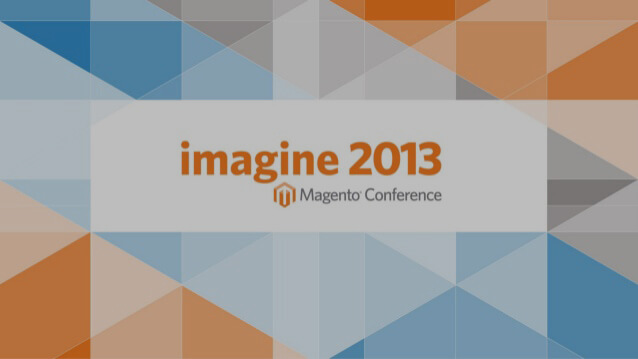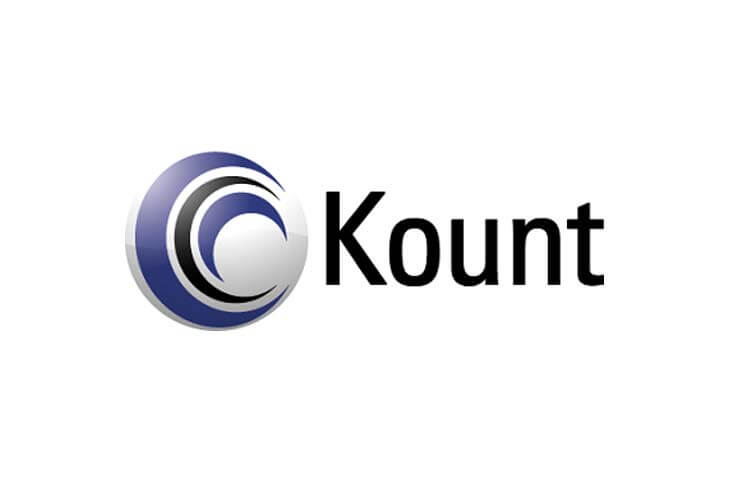
by Adam M. | May 23, 2013 | Web Development
Over the past few months we have seen many companies struggling with returns process flows and supporting technologies. We’re happy to be able to feature an upcoming webinar by Third Wave Business Systems, our partner and SAP Business One specialist, on this very challenge!
Effectively Manage Return Materials Authorization by Third Wave Business Systems
In an ever changing technological world, it is becoming more and more crucial that you have a strong Return Materials Authorization (RMA) process in place at your organization. If you are unfamiliar with the term, RMA provides the capability to issue authorizations, track status, and process materials returned from customers. For example, let’s say a salesperson at your organization took an order for 200 items, the shipment was sent out to your customer, and upon receiving the goods, realized they were shipped the right item but in the wrong color. With RMA, you can easily obtain authorization to return/exchange the product and receive immediate payback and return on investment. Some key features of Return Materials Authorization include:
- Create new RMA documents for item, batch, or serialized returns and expected disposition defaults, providing instant visibility into inbound material returns
- Easily convert RMAs into Customer Returns to create an Incoming Inspection queue to initiate the retuned materials workflow
- Automate inventory transactions through the Inspection disposition process
- Quarantine materials through transfers into separate warehouses
- Automatically create Service Calls for those items requiring service work
- Generate the data required to analyze returns trends by business partner, item, or batch
- Turn data into a proactive tool in addressing product quality, sourcing, or business partner relationship problems
As you can see, RMA helps minimize the costs involved with unauthorized returns and ensure that what is returned is accurately processed and dispositioned. The authorization and tracking processes are independent of standard ERP software functions to provide information about returns without impacting on-hand inventory and financials. At the same time, RMA is integrated with standard business process functions such as Sales Returns, Inventory Transfers, and Service Calls to provide a seamless process flow.
Gain tighter control of your RMA processes, control costs, and turn dissatisfied customers into repeat business. This integration does it all! Click here to register for a complimentary webinar demoing Third Wave’s RMA solution on June 11th from 2-3pm EDT. We hope to see you there!

by Adam M. | Apr 5, 2013 | Uncategorized
![Magento-Imagine-2013-Conf-from-April-8-at-LasVegas[1]](https://redstage.com/wp-content/uploads/2013/04/Magento-Imagine-2013-Conf-from-April-8-at-LasVegas1-204x102.jpg) Heading out to the Magento Imagine Conference this coming week? We would love to see you there! Dave and Brian will be there from our Account Executive team as well as our CEO, Adam. Drop us a line: bquinn AT redstage.com, dgardner AT redstage.com, and amorris AT redstage.com.
Heading out to the Magento Imagine Conference this coming week? We would love to see you there! Dave and Brian will be there from our Account Executive team as well as our CEO, Adam. Drop us a line: bquinn AT redstage.com, dgardner AT redstage.com, and amorris AT redstage.com.
We’re looking forward to a fun and insightful time with some great people. Hope to see you out there!

by Redstage Team | Mar 1, 2013 | Uncategorized
Let’s start with a little background before we dive into online focus groups… Market research is usually divided into two types based on the methodological approach used: qualitative and quantitative research. Both of these approaches have their key advantages and disadvantages. As such, some types of data can be easily obtained from one type, while it may be downright impossible to identify from the other. With quantitative research, a person can easily obtain data from a large sample group and focus their inquiries to get very objective responses. Thus, conclusions based from quantitative research have a high degree of probability and often hold true to the entire population. However, there are also several downsides to quantitative research. These can be classified into three general areas: complexity, cost, and time. Conducting quantitative research often requires a high degree of proficiency, as well as costly and time-consuming data gathering methods. Moreover, because of the objectivity of the responses required in quantitative research, the participant can often feel constricted in the answers he can give. Take a simple survey for example. In a question where a participant must check off one or more reasons why he dislikes a particular product, what if the participant’s reason is not provided in the given check list?  Open-endedness is the primary advantage of qualitative over quantitative research. If you’ve ever been interviewed for a job, then you’ve participated in qualitative research. Moreover, this type of research is also much cheaper and can also be conducted much faster than its more rigid counterpart. However, the precision of the data gathered through qualitative research rests largely on the ability of the conductor. In a job interview for example, the interviewer will often base his conclusions on not only the interviewee’s answers, but also on how he says them, his body language, and other nonverbal cues.
Open-endedness is the primary advantage of qualitative over quantitative research. If you’ve ever been interviewed for a job, then you’ve participated in qualitative research. Moreover, this type of research is also much cheaper and can also be conducted much faster than its more rigid counterpart. However, the precision of the data gathered through qualitative research rests largely on the ability of the conductor. In a job interview for example, the interviewer will often base his conclusions on not only the interviewee’s answers, but also on how he says them, his body language, and other nonverbal cues.
The traditional focus group
A focus group is form of qualitative research that essentially functions like a group interview. The participants are often asked open-ended questions on their opinions on a product, service, marketing campaign, or any other company concern. According to Lindlof and Tylor, authors of Qualitative Communication Research Methods, one of effects of group discussions is that it produces data and insights that would be less accessible without interaction found in a group setting—listening to others’ verbalized experiences stimulates memories, ideas, and experiences in participants. This is also known as the group effect where group members engage in “a kind of ‘chaining’ or ‘cascading’ effect; talk links to, or tumbles out of, the topics and expressions preceding it.” 
Online focus groups
Thanks to recent advances in technology, conducting online focus groups has been a growing trend in market research. The way that online focus groups work by inviting a random sample from a large group of pre-screened individuals that represent the target market to log into a web conference with a focus group moderator. Once the group has assembled, the moderator then guides the flow of discussion using a set of prepared questions and unscripted ones. Meetings usually last from around sixty to ninety minutes, and are often viewed from a virtual backroom by other company representatives acting as observers. If the market research was outsourced, the research company’s clients would act as the observers. The observers in the virtual backroom are invisible to the participants of the web conference.
The benefits
There are several benefits online focus groups have over traditional (face-to-face) ones. Here are a few:
- Cost. Online focus groups are often much cheaper since it eliminates the need to transport, lodge, and feed participants. Savings are most significant when company’s actually need to a focus group of participants from different parts of the country.
- Time and convenience. Since everything is done in front of a computer screen, the researcher and participants will no longer need to travel to the research venue. They can, therefore, avoid a lot of wasted time and inconvenience involved in travelling. Moreover, this also makes the research much faster to conduct. Time saved from research can often mean a strong competitive advantage for the client if he gets to introduce a new product or service to the market before his competitors.
- Suitable for some products and services. Conducting interviews via computer can easily help you get closer to a specific market demographic: technology-savvy individuals. If you want to conduct market research for a website or other online service, online focus groups can help you get very accurate results. Participants are even known to answer personal questions more freely when in an online focus group. This has mainly been attributed to the anonymity participants often feel when they’re behind a computer screen.
The downside
However, because of the limited interaction of online focus groups, moderators will often find it harder to interpret nonverbal cues from the participants. This is especially true when trying to interpret body language. Unlike traditional focus groups where the moderator can easily identify cues like seating position (whether laid back or listening in) and hand gestures (whether crossed or open armed), he is only confined to facial expressions and speech patterns.
Pro Tip: Usertesting.com
At Redstage, we have had a very high level of success with this variant of online focus grouping. For only $49 each, you receive video and audio of a live person combing through your website and discussing any problems they face. You can provide questions and scenarios to guide the test and even narrow down the users who will perform the tests based on demographic information. We advise that you purchase at least 10 users for the test, which puts the entry cost for online focus grouping at a very low $500. Visit usertesting.com here.

by Adam M. | Jan 22, 2013 | System Integrations
 Each month we feature a partner company that has produced great results for our clients. This month we’ll be discussing the leader in Fraud Protection, Kount!
Each month we feature a partner company that has produced great results for our clients. This month we’ll be discussing the leader in Fraud Protection, Kount!
Sell More Things, To More People, In More Places Than Ever Before
Kount helps online businesses boost sales by reducing the risk associated with fraud allowing them to accept more orders. Kount’s all-in-one, SaaS platform is designed for eCommerce retailers operating in card-not-present environments, simplifying fraud detection through an incredibly accurate, automated process dramatically improving bottom line profitability. Merchants using Kount can accept more orders from more people in more places than ever before.
For each transaction, Kount’s “decisioning” engine analyzes hundreds of relevant variables and activity across the globe in real-time providing the most accurate fraud prediction available. Kount applies a multitude of proven and proprietary technologies based on the specific needs of each customer reducing and many cases eliminating the need for manual review of orders.
Kount provides a single, turnkey fraud solution that is easy-to-implement and easy-to-use. Kount’s proprietary technology has reviewed hundreds of millions of transactions and provides maximum protection for some of the world’s best-known brands.
Boost Sales, Beat Fraud
Here are a few results from recent case studies:
CDBaby – The world’s largest independent music store on the web
- Reduced fraud by 90% within 30 days with no reduction in sales
- Reduced Losses due to fraud from $26,000/month to $850/month
- Reduced chargebacks from 2.6% to 0.1%
- Expanded marketing & sales opportunities
BustedTees – Fun, pop culture tees
- Reduced chargebacks from 2% to under 0.25% and stopped the $5,000/month chargeback fines
- Allowed more orders to be accepted resulting in a 5% increase in sales
- Opened 30 new markets thought to be too risky before Kount was installed
- Reduced the number of manual reviews needed dramatically
Take a look at the Kount video to see how their fraud platform protects their customers.
https://www.kount.com/campaigns/boost-sales-video
For more information about Kount, please visit www.kount.com


![Magento-Imagine-2013-Conf-from-April-8-at-LasVegas[1]](https://redstage.com/wp-content/uploads/2013/04/Magento-Imagine-2013-Conf-from-April-8-at-LasVegas1-204x102.jpg) Heading out to the Magento Imagine Conference this coming week? We would love to see you there! Dave and Brian will be there from our Account Executive team as well as our CEO, Adam. Drop us a line: bquinn AT redstage.com, dgardner AT redstage.com, and amorris AT redstage.com.
Heading out to the Magento Imagine Conference this coming week? We would love to see you there! Dave and Brian will be there from our Account Executive team as well as our CEO, Adam. Drop us a line: bquinn AT redstage.com, dgardner AT redstage.com, and amorris AT redstage.com.
 Open-endedness is the primary advantage of qualitative over quantitative research. If you’ve ever been interviewed for a job, then you’ve participated in qualitative research. Moreover, this type of research is also much cheaper and can also be conducted much faster than its more rigid counterpart. However, the precision of the data gathered through qualitative research rests largely on the ability of the conductor. In a job interview for example, the interviewer will often base his conclusions on not only the interviewee’s answers, but also on how he says them, his body language, and other nonverbal cues.
Open-endedness is the primary advantage of qualitative over quantitative research. If you’ve ever been interviewed for a job, then you’ve participated in qualitative research. Moreover, this type of research is also much cheaper and can also be conducted much faster than its more rigid counterpart. However, the precision of the data gathered through qualitative research rests largely on the ability of the conductor. In a job interview for example, the interviewer will often base his conclusions on not only the interviewee’s answers, but also on how he says them, his body language, and other nonverbal cues.


Recent Comments